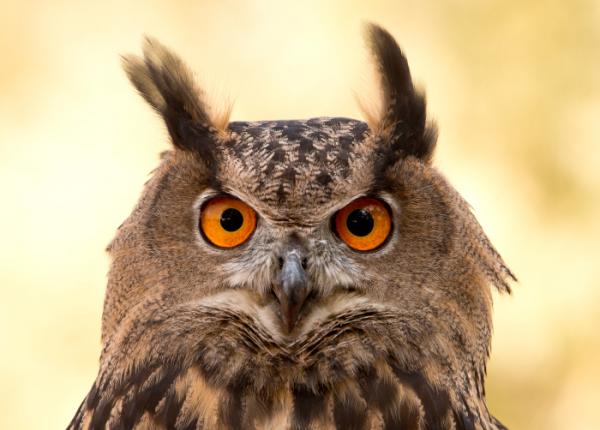Sorry if my question was weird.
And no, I am not some human’s pet that just became intelligent and took over their Lemmy account. 😺

They will probably be their own nation with their own laws on what is fair and what is not based on their values. I assume a new sentient specie will not have the same views and values as humans.

It’s an interesting idea. If they always were intelligent, then yes, they’d probably have their own nation, or maybe they’d even be integrated with us in a society that accommodates for both of our form factors, but I’m sure there’d be terrible racism concerns because if we’re this bad to people who look relatively similar to each other, then we’d be just terrible to a very different intelligent race.
But, if they suddenly became sentient through some sci Fi artifact or event, that’d be a whole other thing, and the process and debate of giving them rights and what to do about it would be complex and an ethical minefield on what to do or don’t do. Probably planet of the apes. But with cats and dogs.

They’ll be persecuted and discriminated

I mostly agree with the comment, however, mammals are sentient. Our current laws are massively influenced by us not really understanding them and by ideas such as non-humans essentially being “living machines”, created as servants to humanity.

Other mammals are sentient, but not sapient so far as we know, with the possible exception of some species of dolphins and whales, but this has yet to be proven. (It is pretty much proven that apes, monkeys, etc are not sapient)
What’s they key distinguisher of sapience? There are different measures, but “theory of mind” is the one that seems most relevant. The ability to think about what someone else is thinking. This seems to correlate also with the ability to ask questions and tell stories, and we currently know of no other being besides humans that can do either— again, research into dolphins and whales continues, and there might be potential there, but we’re pretty darn certain nothing on land has it.

They are already sentient but have not the intelligence of a average developed human. Pigs for example are sentient but their intelligence is like that of a 3 year old human.

All animals are sentient. Smarts/intelligence is what varies. We got the most of the smarts that we know of.

Yes, intelligence is intelligence. There’s nothing about the rest of the body that the brain is encased in that makes one more or less deserving of rights.

If a human has the intelligence of a dog, they should have the same rights as a dog?

Looks like something someone without opposable thumbs would type.

I’ll have you know I meow at the ship computer.

If they became more intelligent than us, would they pick up our poo?

Cats definitely wouldn’t

Yes, obviously.

Humans go out of their way to mistreat and abuse other humans. If cats and dogs became as intelligent as humans, some dickhead leader of a leading religious cults would label them satan/ abomination/ equivalent b.s. and call to have them exterminated. and/or capitalists would lobby to deny them rights and pass laws to profit off them & their labour.

Yes, absolutely they should have rights.
In some countries (like France, iirc), chimps are recognized as having civil rights. They don’t have identical rights to humans of course. They don’t have the same rights as a human, but they are recognized as having rights as individuals.
Although the US hasn’t recognized that, yet, it has effectively banned chimpanzee research. You basically cannot get funded for chimpanzee research unless you a) demonstrate they are necessary for the research and b) you pass a review board similar to a human subjects review board who are charged with maintaining ethical research standards. I don’t do primate research, so I’m not sure of all of the details, but with human subjects boards you have to show that not only does your research. avoid harming humans, the subjects themselves must benefit from your work, if it is health related. When the new rules were passed, most research chimps were retired to preserves
So if there was a l other animal with fully human intelligence, there’s legal precedent to recognize that they have inherent dignity and rights.

Parts of the US struggle to offer an adequate level of rights to its human residents.

And they haven’t signed the International Declaration of Human Rights. Apparently declaring work and housing as human rights “goes too far”.
No country opposed the Universal Declaration of Human Rights. Every country that was a UN member at the time either voted in favor of it, or abstained because they believed it didn’t go far enough to include denying human rights to nazis and fascists.
Although, the Universal Declaration of Human Rights itself isn’t legally binding. It’s just a joint statement by UN members declaring what is considered human rights. It’s not like a violation of International Laws if they just ignore what they said. (Even if it were an international law, who’s gonna enforce it?)
The Third General Assembly adopted the Declaration just before midnight on December 10, 1948 with a vote of 48 to zero and eight abstentions. The abstentions came from the USSR, the Ukrainian Soviet Socialist Republic (UKSSR), the BSSR, Yugoslavia, Poland, Saudi Arabia and South Africa.
The Six Communist Abstentions
The Communist abstentions coalesced around the view that the Declaration did not go far enough. They had repeatedly made the point that to protect human rights adequately, the Declaration needed explicitly to condemn fascism and Nazism. Since it did not do that, they would abstain from the vote. The deep animosity that exists between Marxist egalitarianism and Nazi racism led the USSR delegation to propose amendments to what became Articles 19 and 20 stating that fascists and Nazis did not have human rights to freedom of expression and association. When those amendments were rejected, the Communists, rather than abstaining, which was their custom, voted against these articles.
https://ccnmtl.columbia.edu/projects/mmt/udhr/udhr_general/drafting_history_10.html

If they’re as smart, communicatable and capable of social responsibilities, then yes. There are some species that may be “differently” smart as humans, but lack a common lanuage and can’t take on shared social responsibilities, so giving them rights is difficult to say the least.
There was a post the other day about whether anyone else has noticed a significant decline in the reading comprehension of the general population, even on sites that skew towards the nerdy like Lemmy, and here we are, with a significant number of top comments that don’t know what “should” means.

I think they know what it means, but they just wanna complain about quasi-related stuff.
If that was the case you would assume they would lead with “Should, but won’t because cynicism.” And several do, because they understand the assignment!

And no, I am not some human’s pet that just became intelligent and took over their Lemmy account. 😺
If one of my cats took over my Lemmy account, you’d know it for sure. One of them would be always silent, lurking; the other would be spamming stupid shit about yoghurt, towels and boxes, in German.
If cats and dogs became as intelligent as humans, should they have the same rights as humans under law?
Under the moral premise that intelligent beings should get similar rights, yes. Thankfully people don’t usually follow this premise - otherwise mentally disabled people would suffer even more.
Instead I think that most people follow some sort of “naive Realpolitik” - we’re humans and we defend human interests, that’s it. In this case cats/dogs would likely get rights above most other animals (as allied species), but still lower than our own.
I’m not sure on what I would defend in this case.

If they were smart they’d keep their mouths shut

Intelligence is a term too vague to be of use for the comparison of species. If you were tasked with finding the next waterhole in an arid landscape you might not be found very intelligent compared with a whole range of other species. Or if the proof of intelligence was to manage a planet in a sustainable way.
Rights are difficult. Basically we have, gradually, invaded a lot of spaces once occupied by other species, and keep invading more. Giving rights to dogs, cats, whales or horses is an invader giving rights to the invaded. On the other hand, as we keep turning the temperature of the planet up, we worsen the conditions for ourselves and some bug, fungus, microbe or lizard might prove to be the next big thing after mammals had their chance?

Why not? Some cultures such as the Greeks already did this for dolphins because of the idea dolphins have human level intelligence.
- Fizz ( @Fizz@lemmy.nz ) 2•1 year ago
Depends if they can work. If they contribute then they can be equal. But if we still provide everything for them then they’re under the control of their providers.

This sounds kinda wrong, if you would put that logic in other circumstances we are at the argument the “anti-women-voting-right” argument from the crazy lady: Women should only be allowed to vote if they work. Or old people who retire, should they not be allowed to vote anymore? People who have medical conditions and so on…
- Fizz ( @Fizz@lemmy.nz ) 1•1 year ago
Well I wouldn’t do it on an individual basis it would be based on the majority of the species. If most dogs are as smart as humans and they work and care for themselves then they should have equal rights. But if most dogs are pets and only a small percentage work then they should not have equal rights.

If they contribute they can be equal? We don’t even say the same about humans.
- Fizz ( @Fizz@lemmy.nz ) 1•1 year ago
But most humans do contribute and work and that’s why we give equal rights.

No but if humans becomes as smart as cats and dogs, we may have a chance to survive.
Humans are the dumbest creatures on the planet. Completely unable to coexist with nature. Most of us can’t survive without shops. And we kill eachother because we think evil is in other counties, not ours.

This is a dumb take. Humans are entirely capable of coexisting with nature, but we’ve collectively chosen not to because life is easier that way. We’ve risen so far above mere survival, that we’re able to sit around and argue about how ill equipped modern humans are for survival over the Internet.
We’re so intelligent that we realize killing each other is a bad thing and have written down laws to prevent it, but we’re still irrational and emotional that we do it anyway. But animals killing each other is nature’s primary state of survival.

If a human has deficiencies from birth or after an accident, should they have the same rights under laws?
